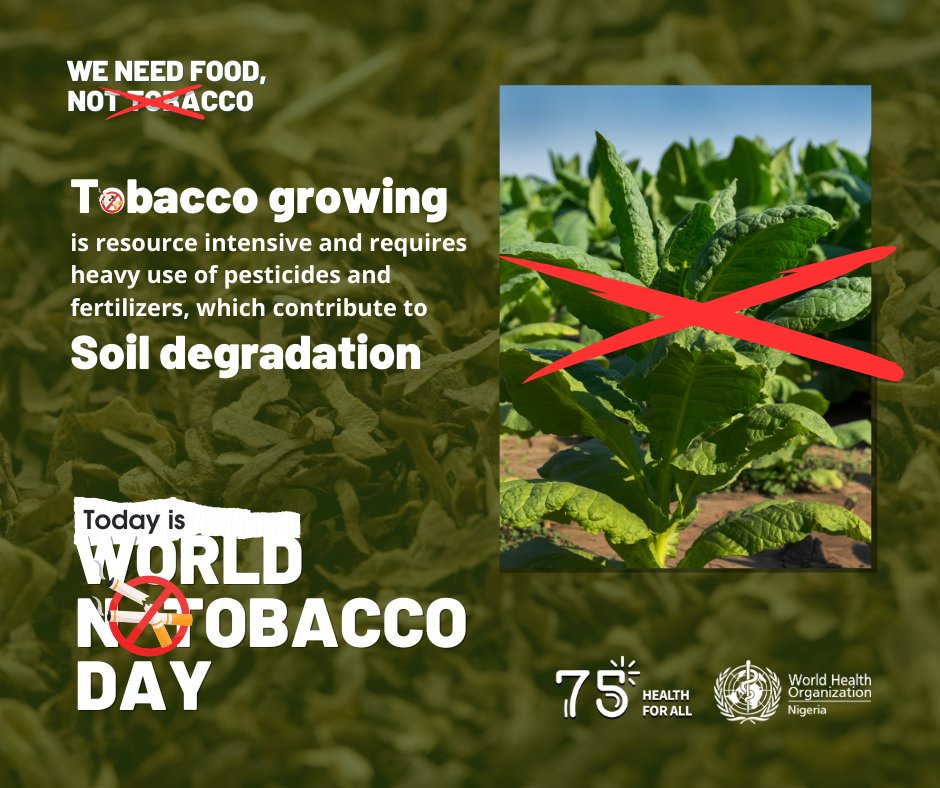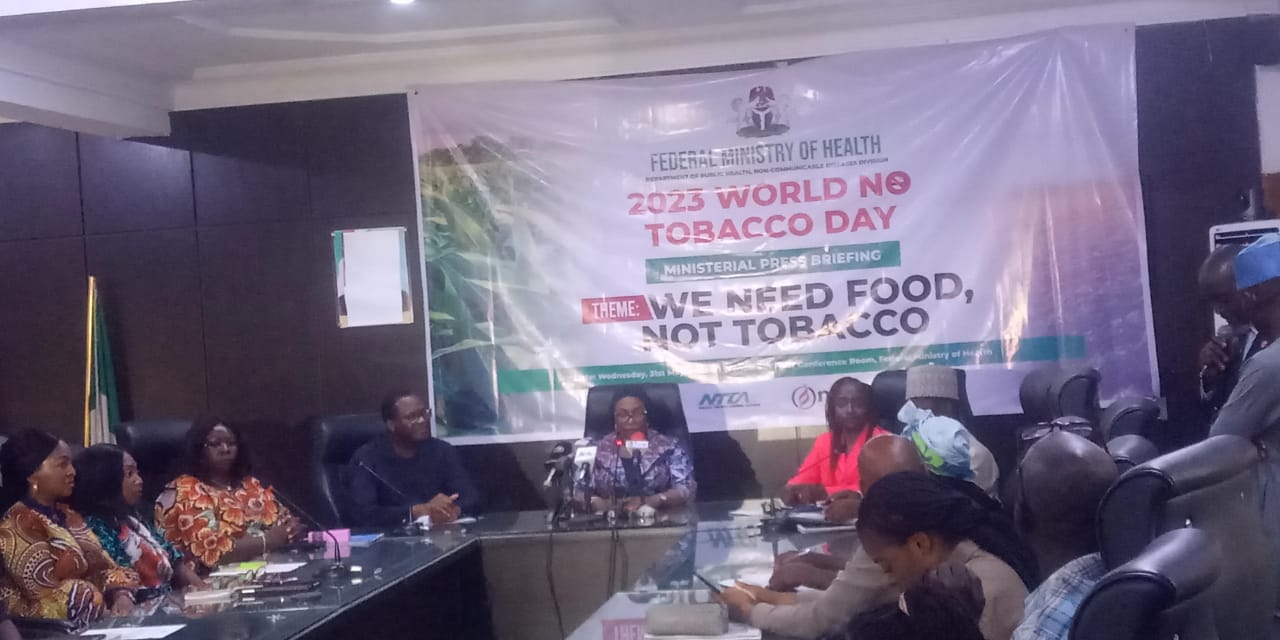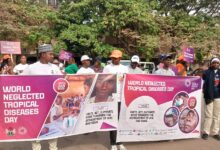FG Blames Food Crisis On Tobacco Cultivation

The Permanent Secretary, Federal Ministry of Health, Engr. Olufunsho Adebiyi has attributed the ongoing food crisis in the country to Tobacco cultivation.
Adebiyi disclosed this in a press briefing to mark the 2023 World No Tobacco Day on Wednesday, May 31, 2023 in Abuja.
The 2023 World No Tobacco Day tagged “We Need Food: Not Tobacco” is the day designated for both local, national and global communities to raise awareness on the harmful effect of tobacco use, exposure to tobacco smoke and other debilitating effects associated with tobacco, the debilitating health effect of tobacco use and exposure to tobacco smoke as well as what government is doing to hold the tobacco industry accountable for the damages they cause.
The Permanent Secretary informed that, the theme for this year’s campaign which is, “We Need Food, Not Tobacco” seeks to raise awareness about alternative crop production, marketing opportunities for tobacco farmers and encourage these farmers to grow sustainable, nutritious crops.
He further added that the day also aims to expose the tobacco industry’s efforts which are known to contribute to the global food crisis through interference with government’s laudable policies that are geared at promoting viable, profitable and sustainable alternatives to tobacco growing.
He said although, Nigeria is not a major producer of tobacco leaf in the world, the 2022 data from the Food and Agriculture Organization show that in the African Region, Nigeria ranks 9th position with an estimated 9,150 hectares of land used for tobacco farming.
Adebiyi also disclosed that the reported tobacco farming states in Nigeria were Osun, Oyo, Kwara, and Sokoto States while, the top 8 leading tobacco growing countries Africa are Zimbabwe, Malawi, Mozambique, Tanzania, Uganda, Cote d’ivoire, Kenya and Zambia.
On her part, the Director, Department of Public Health, Federal Ministry of Health,
Dr. Alex Okoh said, this year’s global campaign specifically aims to raise public awareness on the need to embrace the cultivation of sustainable and nutritious crops in place of tobacco.
She added that, the 2023 campaign also sought to discourage governments at all levels from providing incentives and subsidies for tobacco cultivation but rather to plow back these subsidies to support farmers to switch to more sustainable crops that improve food security.

Okoh assured that, beyond the activities to mark the 2023 World No Tobacco Day, the Federal Ministry of Health remained committed to working with relevant stakeholders to ensure that the National Tobacco Control Act of 2015 and its Regulations of 2019, are effectively implemented.
Country Representative of the World Health Organisation (WHO), Dr. Walter Moulombo said, apart from tobacco harming health, tobacco growing, and production worsens food insecurity, contributing to the global food crisis in various ways.
Highlighting some of the harmful effects of the crop, Moulombo stated: “I would like to remind us that tobacco kills half of its users and is responsible for more than 8 million deaths annually. More than 7 million deaths are a result of direct tobacco use while 1.2 million nonsmokers die from exposure to second-hand smoke.
“Firstly, every year, more than 3.5 million hectares of land are used to cultivate tobacco globally. This has contributed to deforestation of 200, 000 hectares per year. Secondly, tobacco growing entails a lot of resources including requiring the heavy use of pesticides and fertilizers, which contribute to soil degradation.
“Thirdly, since tobacco depletes soil fertility, land used for growing tobacco has a lower capacity for growing other crops, especially food crops. In addition, compared with other agricultural activities such as maize growing and even livestock grazing, tobacco farming has a far more destructive impact on ecosystems as tobacco farmlands are more prone to desertification. In the long term, these contributes significantly to climate change and damages the ecosystem”.
The WHO Representative therefore, called on governments and policymakers to develop and implement policies and strategies as well as provide enabling market conditions for tobacco farmers to move to growing food crops that would provide them and their families a better life.
He informed that, Articles 17 and 18 of the WHO Framework Convention on Tobacco Control provides specific principles and policy options on the promotion of economically viable alternatives for tobacco workers, growers and individual sellers and enhancing protection of the environment and the health of people respectively.






